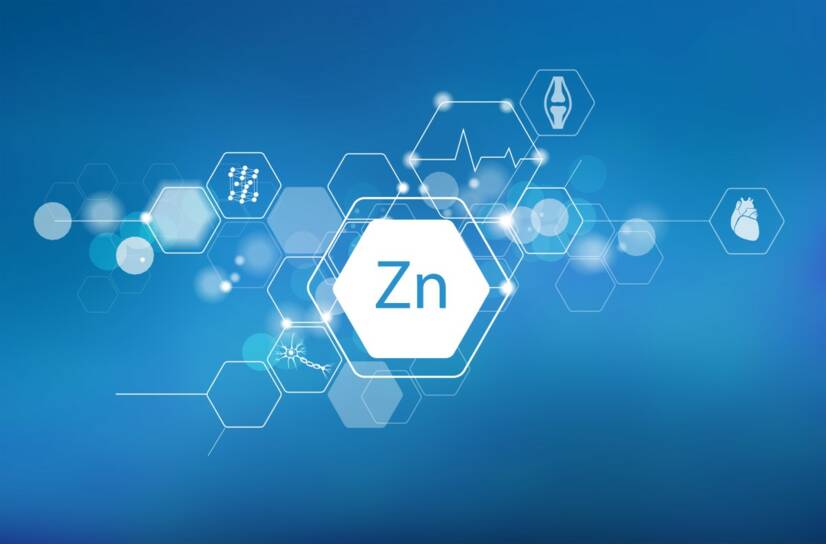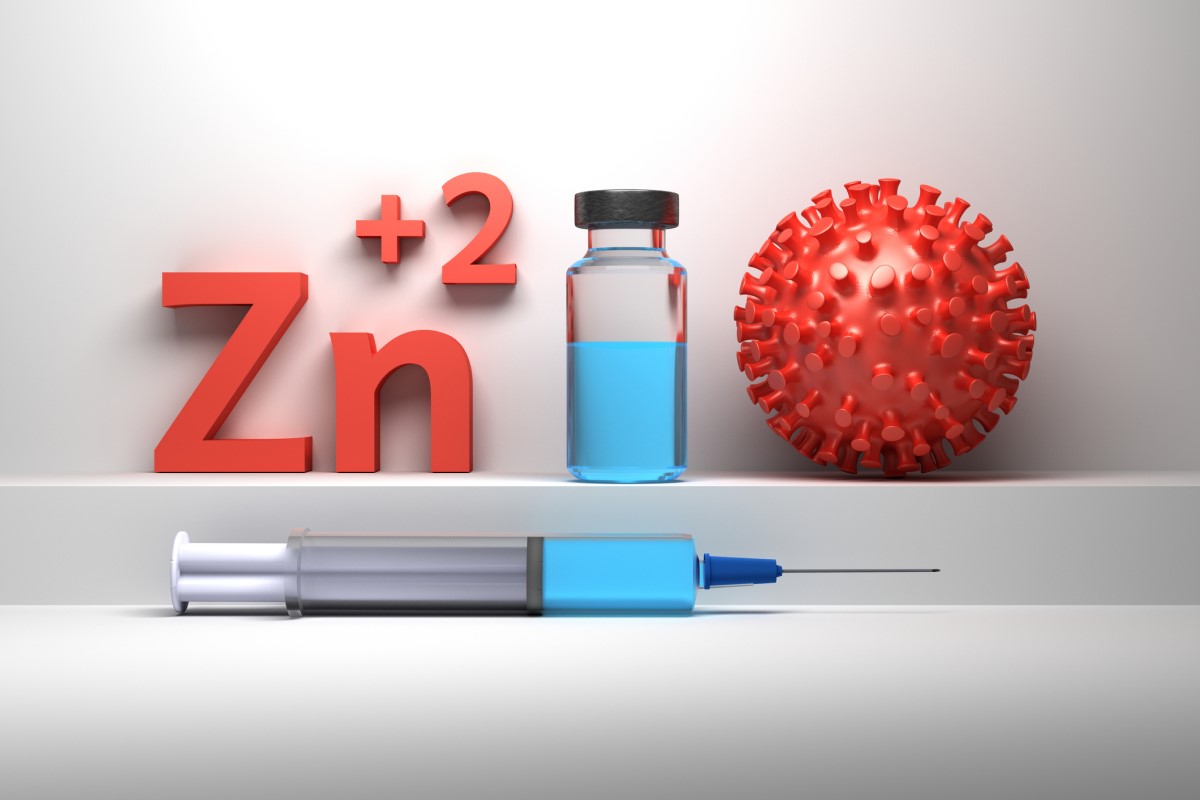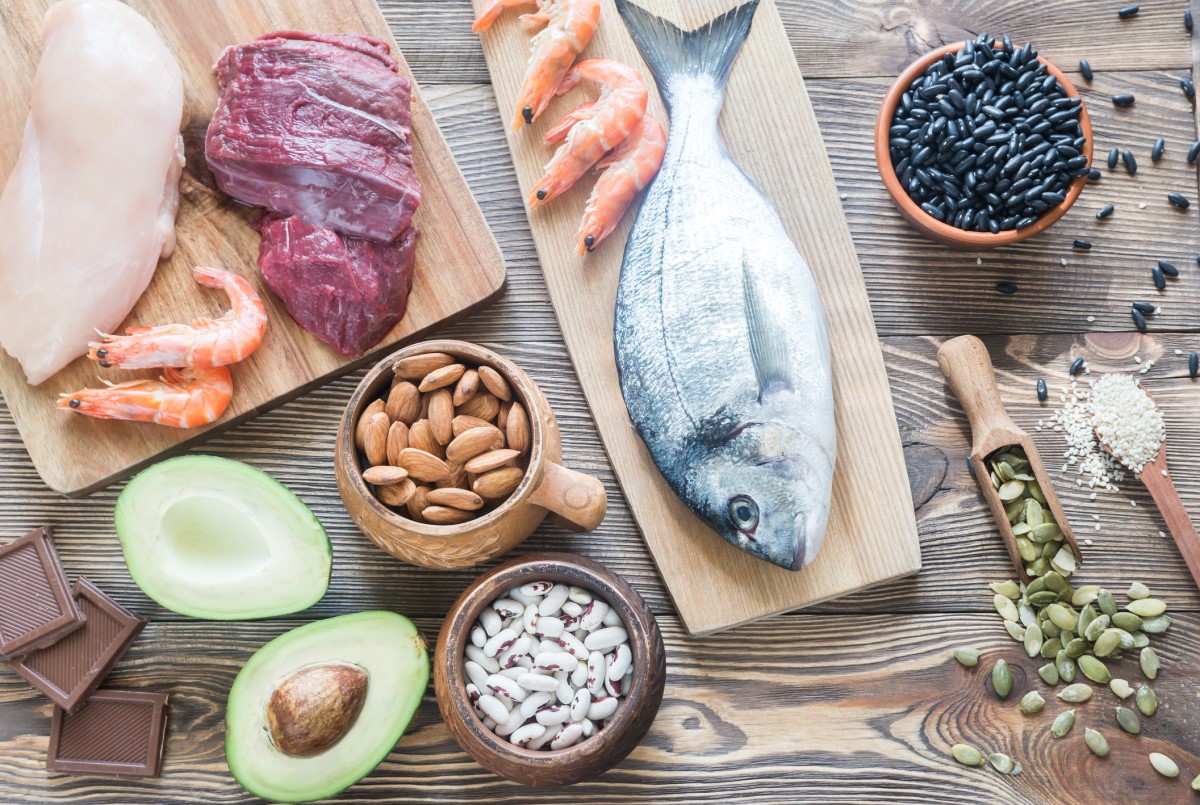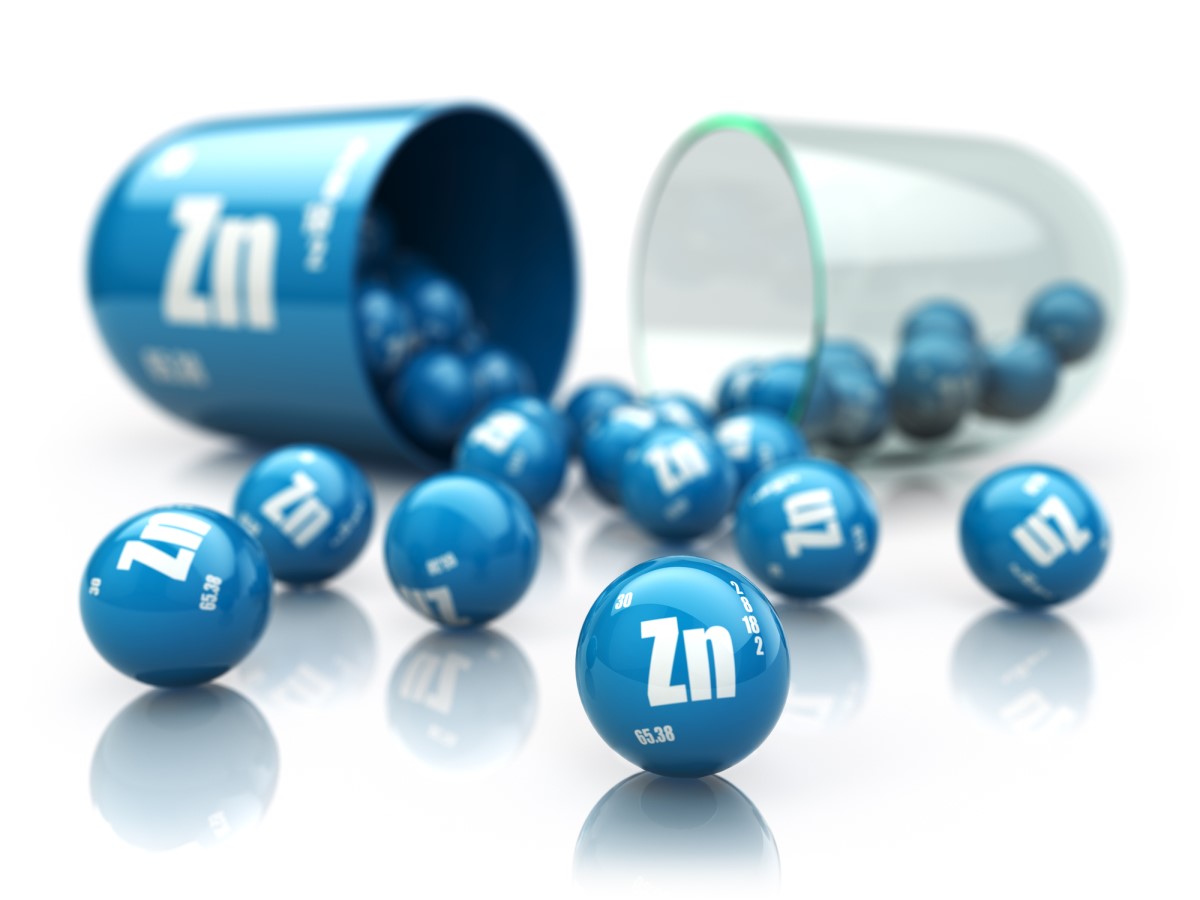- skp-casopis.sk - Zinc from the dermatologist's point of view II
- skp-casopis.sk - Zinc and its important and irreplaceable role in dermatology and interdisciplinary medicine
- skp-casopis.sk - Zinc and its application in skin physiology and pathophysiology
- ncbi.nlm.nih.gov - Zinc and its importance for human health: an integrative review
- sciencedaily.com - Eight ways zinc affects the human body
- intechopen.com - Zinc in Human Health
- medicalnewstoday.com - What are the health benefits of zinc?
What is zinc good for and what are its effects? Food sources and dosage

What is zinc good for, you ask? Believe me, it doesn't just work for hair growth. Also, you often wonder about its food sources and dosage.
Article content
Zinc is a very important trace element for the proper functioning of the human body.
It is an important trace element that is essential for the human body.
What is it used for and what are its natural sources in food?
The body of an adult contains approximately 2 to 3 g of zinc.
Most zinc in the human body is found in the skin, nails, hair, muscles and eye tissues.
It is a component of 3000 proteins, 300 enzymes and coenzymes.
What roles does it play in the human body?
- Contributes to the proper functioning of the immune system
- helps maintain healthy nails, skin and hair
- promotes bone growth
- influences the metabolism of sugars and proteins
- neutralises the harmful effects of alcohol
- contributes to the proper functioning of the brain and eyesight
- contributes to the synthesis of DNA, RNA and haemoglobin
- is necessary for CO2 transport
What is its effect on different parts of the human body?
It is important for the functioning of several body systems and organs.
Here are 8 areas in which it is essential.
1. Brain
Blood zinc levels are lower in patients with Alzheimer's and Parkinson's disease. In a study on rodents, zinc was found to act as an antidepressant.
Some studies suggest that zinc may improve cognitive function.
2. Cardiovascular system
Zinc plays an important role in the regulation of arterial blood pressure. Interestingly, zinc is metabolized differently in hypertension in men and women.
3. Immune system
It is well known that the human body needs zinc for proper immune system function. Zinc directly and indirectly supports non-specific immunity mechanisms.
In specific immunity, it is involved in all stages of immune cell maturation.
Low zinc levels may increase the risk of infections.

4. Liver
Zinc deficiency in the liver occurs not only in patients with cirrhosis of the liver, but also in less advanced alcoholic and non-alcoholic liver disease.
5. Sexual organs
Men in particular need sufficient zinc.
It is essential for proper sexual development. Also for the functioning of the reproductive organs.
Men lose most zinc through ejaculation.
Low zinc levels can lead to delayed sexual development, fertility problems in men.
6. Bones
One of the factors causing poor bone health is inadequate intake of calcium, magnesium, vitamin D and K and zinc.
Low zinc intake is associated with the development of osteoporosis.
7. Zinc and its effect on the beauty crown
It is known that one of the manifestations of zinc deficiency is hair loss (alopecia).
Interestingly, in addition to hair loss, patients suffering from zinc deficiency also have irregularly shaped hair.
Zinc deficiency can also manifest itself in thinning eyelashes and eyebrows.
How much hair loss per day is considered a normal condition?
On average, 40-100 hairs per day (when not washed) and 200-300 hairs per day on days when hair is washed.
Zinc promotes cell proliferation, tissue growth and repair of damaged tissues. In addition, it promotes the maintenance of good sebaceous gland health. The amount of zinc that reaches the roots of the hair also affects the rate of hair growth.
Of course, shampoos and conditioners containing zinc are available in the market.
8. What effect does zinc have on our skin?
Zinc is involved in the processes of skin protection (immune response) and repair (wound healing). It is very important in wound healing and in regulating inflammatory processes.
Many studies have confirmed the important role of zinc in the onset and development of skin diseases. It is used to treat skin diseases in topical and systemic treatments.
- Acne
Insufficient dietary zinc intake has been shown to worsen acne symptoms.
Acne patients have also been found to have lower serum zinc levels compared to controls. It has an irreplaceable role in the treatment of acne.
The effect of zinc takes place on several levels:
- it reduces the number of propionibacteria
- reduces the level of fatty acids in the skin
- has an anti-androgenic effect
- Atopic eczema
The results of several scientific studies show that patients suffering from atopic eczema have reduced zinc concentrations in their blood, hair and nails.
One of the risk factors for the development of this disease is zinc deficiency during pregnancy and childhood.
What are the causes of zinc deficiency?
- Insufficient intake
- poor absorption
- ulcerative colitis
- extreme excretion
- nephrotic syndrome
- pregnancy and breastfeeding
- burns
- cystic fibrosis
- anorexia
- alcoholism
- HIV
- malignant tumours
What are the symptoms of zinc deficiency?
Deficiency manifests itself as...
The table below lists the manifestations of zinc deficiency by body system
| skin manifestations | |
| gynaecological and urological |
|
| ophthalmological |
|
| psychiatric |
|
What is the relationship between zinc deficiency and age?
Clinical manifestations of zinc deficiency generally vary according to age.
In early childhood, diarrhoea is a prominent symptom. Zinc deficiency also leads to cognitive impairment, behavioural disorders, impaired memory and learning disabilities.
In adolescents (aged 15 to 18 years), it can manifest itself in stunted growth, delayed sexual development and psychological disorders.
Manifestations of zinc deficiency in the elderly include chronic, poorly healing wounds and recurrent infections.
Are you familiar with the term acrodermatitis enteropathica?
It is a congenital disease that manifests itself in childhood.
The cause of the disease is a mutation in the gene encoding one of the zinc transport proteins.
The skin manifestations appear a few days to weeks after the cessation of breastfeeding. This is justified by the fact that zinc deficiency is partially compensated by breast milk. Clinical manifestations of the disease include foci of dermatitis, alopecia and diarrhea.
What are the most important sources of zinc?
Zinc from plant sources is less easily absorbed than zinc from animal sources. This is because plants contain compounds that slow down zinc absorption.
For vegans and vegetarians, legumes are an irreplaceable source of zinc.
Cooking foods improves the bioavailability of zinc.
The most important sources of zinc include:
- Crustaceans and molluscs (crabs, oysters, mussels, lobsters)
- meat (especially red meat)
- fish (salmon, sardines)
- legumes (lentils, chickpeas, beans)
- nuts and seeds (pumpkin seeds, cashews)
- whole grain cereals (oats, brown rice)
- vegetables (kale, peas)
- milk and dairy products
- eggs
- dark chocolate

How to take zinc properly?
It is available in pharmacies in the form of tablets, lozenges (with different flavours) or capsules.
Zinc can be obtained as a dietary supplement or as an over-the-counter medicine.
All preparations should be taken at intervals between meals.
Half an hour before or two hours after a meal.
Take the tablets or capsules with plenty of liquid. Coffee, milk and mineral water are considered inappropriate liquids.
Table of combinations in dietary supplements
| Combinations of zinc in dietary supplements |
| Zinc + selenium |
| Zinc + vitamin C |
| Zinc + vitamin C + vitamin D |
| Zinc + D-aspartic acid |
| Zinc + hyaluronic acid |
| Zinc + Magnesium + Calcium |
There is a product on the market containing zinc in a highly usable chelated form of zinc disglycinate. The advantage of this form is that it reaches the target site of action more easily.
Zinc reduces the absorption of some antibiotics (tetracyclines and fluorinated quinolones). As a result, the effectiveness of these antibiotics is reduced. For this reason, it should be used with a time delay.
At least 2 hours before and 3 hours after taking antibiotics.

When should we consider taking zinc?
- when you are allergic to zinc
- when taking copper, iron and calcium salts at the same time
- during pregnancy and breastfeeding, zinc should only be taken if justified
In general, if a patient is taking other medications or dietary supplements, they should consult a doctor or pharmacist about taking zinc at the same time.
What are the recommended daily doses of zinc?
The recommended daily dose of zinc is 10-15 mg for adults, 20-25 mg for pregnant and lactating women, and 5-7 mg for children.
Table of doses by age and sex
| Age | Women | Men |
| 0-6 months | 2 mg | 2 mg |
| 7-12 months | 3 mg | 3 mg |
| 1-3 years | 3 mg | 3 mg |
| 4-8 years | 5 mg | 5 mg |
| 9-13 years | 8 mg | 8 mg |
| more than 14 years | 11 mg | 9 mg |
The most common side effects include:
- metallic taste in the mouth
- abdominal pain
- vomiting
- and headache
Serious health problems can occur with long-term use of high doses of zinc:
- Decreased copper and iron levels
- Impaired immune system function
- Risk of atherosclerosis
- Impaired sperm production
- Decreased fertility
Interesting resources
Related










